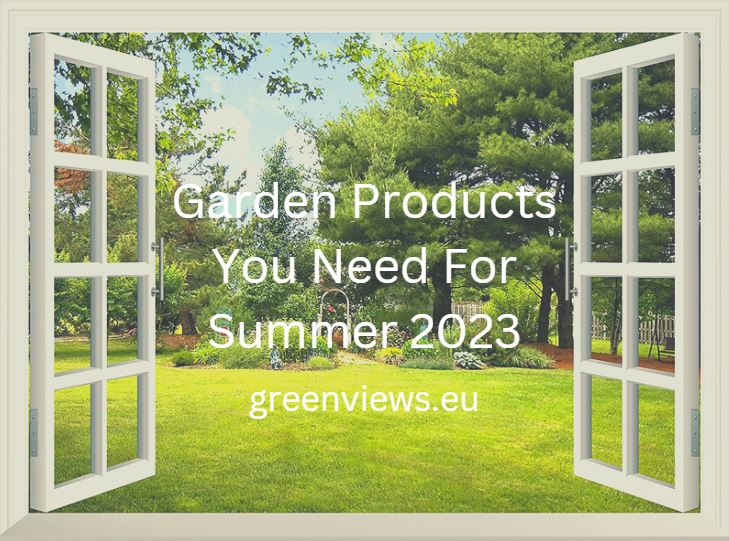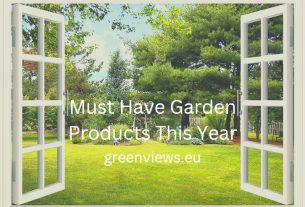If you want to plant a garden this summer, you should look at some of the products available in the market. These include Rock roses, herbs, compost and shade cloths. You will also need to consider which plants will grow best in your region.
Compost alternatives
If you’re looking for compost alternatives for garden products for summer 2023, it’s important to know what to look for. Composting is a natural decomposition process that breaks down food and other organic materials. This results in a compost that is rich in plant nutrients, and is beneficial for both your garden and the environment.
Traditionally, most commercial composts have been made using peat. However, this is set to change in the UK. As a result, more gardeners will be seeking out more environmentally friendly alternative products.
There are many companies offering alternative products. These include coconut coir, a plant material that is both sustainable and affordable. Sheep’s wool offers a number of benefits when used as mulch. It provides a slow-release nitrogen source, as well as temperature regulation and moisture retention.
Shade cloths
Shade cloths are a great way to protect your plants and animals from the sweltering summer heat. You can buy these in a variety of colors and materials.
A shade cloth is a mesh fabric made from a synthetic fiber. It is available in dark green, black or a variety of other colors. The best shade cloths have extra tough corners, are UV resistant and are easy to install.
One of the most important uses for shade cloth is to reduce transpiration. This happens when the cloth traps heat in the air and keeps it from reaching the plants beneath.
Herbs
If you’re planning to plant a garden in your backyard, you’ll need to make sure you have the right supplies to get the job done. The best part is that you don’t have to spend a fortune on them. Some of the best products you can buy include starter plugs, soilless growing media, and hydroponics.
You can even grow herbs indoors. This allows you to enjoy the freshness of your favorite flavors all year round.
Many herbs are also great companion plants for your garden. They provide habitat for beneficial insects, and many of them will repel pests.
Orchids
If you are planning to keep your orchids alive in the coming years, it is important to be aware of the garden products you need to provide them with. This includes proper light, watering, and fertilization.
Depending on your climate and plant type, there are a variety of orchids you can grow. While most tropical orchids like to be outside, some hardy types, such as Vanda and bletilla, can thrive indoors.
Phalaelnopsis, or the moth orchid, is a good example of a plant that can survive in poor light. The orchid may need a little more light than other plants, but it will still bloom if the lighting conditions are right.
Rock roses
Rock roses are hardy, drought-tolerant, and easy to care for. They are ideal for landscaping and planting in sunny, rocky, or sandy areas. However, they are not suited to areas with high humidity or intense heat. Some varieties are better suited for cooler climates.
During spring, rockroses need a general-purpose slow-release fertilizer. This will help them establish. Otherwise, the plants don’t require any fertilizing.
Rockroses prefer dry, well-drained soil. The plant can grow in areas with light shade, but not in wet or sandy soil.
Rock roses can tolerate mild winters. However, they may suffer from a disease called powdery mildew. It can cause damage to the leaves and flowers. You can remove infected areas with insecticidal soap.
Companion planting
Companion planting is one way to keep your garden productive and healthy. This technique involves planting two or more varieties of the same plant together to improve their growth, control weeds, and attract beneficial insects.
Companion planting is a growing trend, especially among home gardeners. The benefits include reduced weeds, increased crop yields, and better soil. Often, the same plants can be used to create shade.
Plants can also provide pest control, water retention, and structural support. Certain combinations can prevent disease and encourage pollination.
For instance, carrots and tomatoes grow well together. They each fix nitrogen in the soil and increase the growth of the other.
Urban gardening
If you’re planning on urban gardening this summer, then there are a number of products available. It’s important to choose containers that will fit your needs, so you can maximize the space you have.
Container gardening is a great way to use spaces that are hard to reach. For example, your balcony or patio. You can also use containers for indoor gardening.
To create a container garden, you’ll need a large pot with drainage holes. Then, you’ll fill it with soil, plants, and seeds. Make sure you choose growing media that’s lightweight. This can be compost, potting soil, or peat moss.



